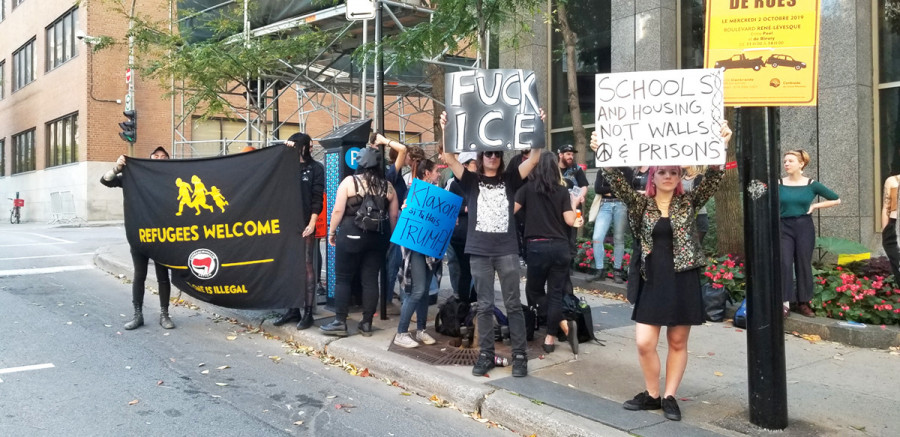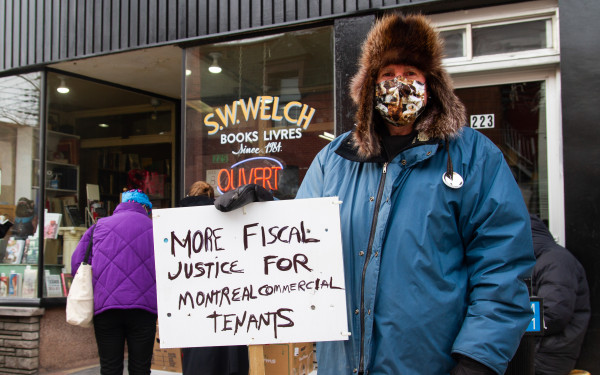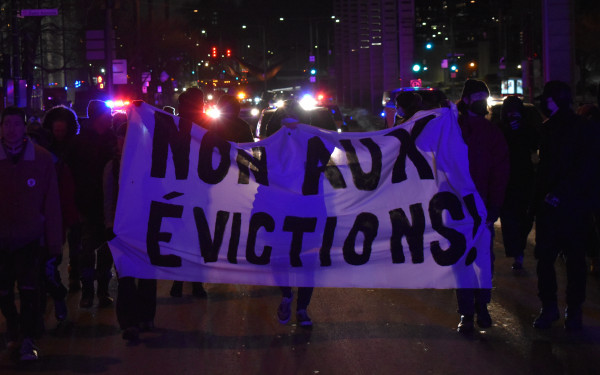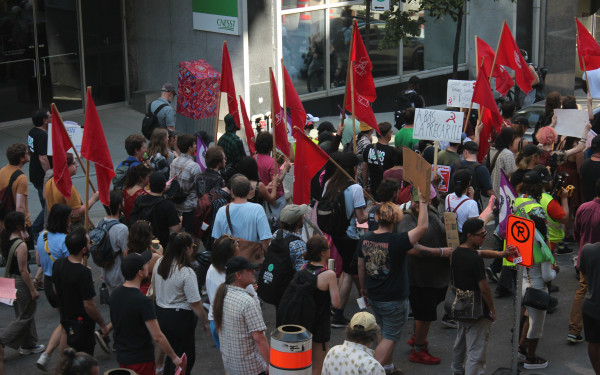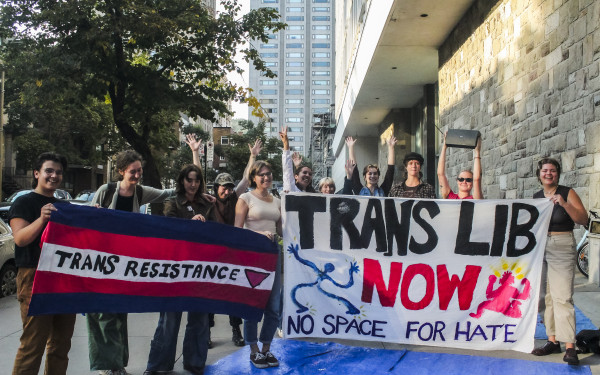Protesters Denounce ICE at Montreal’s United States Consulate
Demonstrators Show Solidarity With Detained Migrants
Last year, Maya Strick’s uncle was deported from Missouri. His two young sons will grow up without a father.
“There are so many effects just off of this one issue with [Immigration and Customs Enforcement] that the consequences affect everything,” said Strick.
A crowd of about 20 protestors stood outside the U.S. consulate in Montreal to show solidarity with detained migrants on Friday evening.
Holding signs that read “Fuck Ice” and “Schools and housing, not walls and prison,” the protest lasted an hour, and was met with positive reactions from passerby and honking cars.
“It’s just everywhere in the news, and in the media,” said event organizer Kale Synott. “It’s something that we’re confronted with every day, too. So, at some point it’s like, what are we going to do?”
“The consulate’s right here,” she continued. “Everyone should know where it is, and concentrate, and share, and just stay angry. I feel like people are not angry much anymore, and that’s bad. That’s a bad sign.”
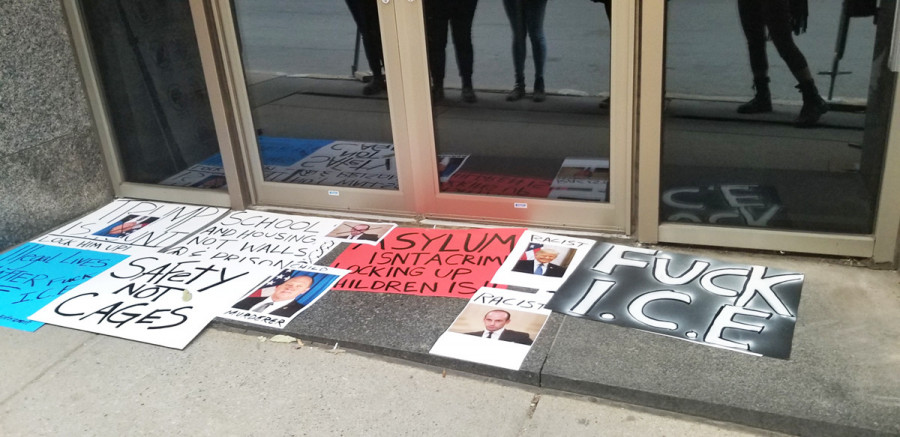
It’s just everywhere in the news, and in the media. It’s something that we’re confronted with every day, too. So, at some point it’s like, what are we going to do?
—Kale Synott
The protest was put on by the Not Your Babe Fest, a feminist music festival. Synott was inspired from Not Your Babe Fest’s past protest against the U.S.’s abortion ban, which took place last May.
ICE was created under the U.S.’ Homeland Security Act in 2002, following the events of Sept. 11, 2001. Concerned mostly with immigration enforcement within the U.S., ICE’s job is to locate, detain, and deport undocumented immigrants from the U.S.
Under the Obama administration, ICE prioritized the deportation of those who commited serious crimes.
The Trump administration has since widened ICE’s mandate to target any undocumented immigrants in the country. In 2017, they expanded and hired 10,000 more officers.
In May, ICE had over 50,000 immigrants in detention from across the country, of which nearly 1000 are family units. The overcrowding of families, inadequate food, and a lack of access to showers are not uncommon in ICE detention centres. Families are often torn apart.
“There’s a lot of things to protest nowadays, but this is one of the really important issues,” said one protester, Charlotte Patrick.
Since 2012, ICE has detained nearly 1500 U.S. citizens, the main targets being children of immigrants, and citizens born outside of the U.S. Forced to prove their American citizenship, detainees spend nights in detention facilities, away from friends and family.
While not everyone is able to “just get a backpack and go down there [themselves] and protest”, it is important to get some attention from the people who can actually do something about it, said Patrick.
“Indigenous peoples don’t have the borders we do,” she continued. “It’s really important for us to recognize that [borders] are very much Western, imperialistically imposed, and they shouldn’t be as powerful as they are.”
Back home in Missouri, Strick said it’s hard to get people to listen. She describes her hometown as conservative, xenophobic, and racist. She said people “would rather stay ignorant than know some things and fix them.”
Along with the protest, Not Your Babe Fest produced a fundraising show on Friday with all proceeds going to The Fianza Fund—a fund dedicated to paying the bail of detainees in El Paso and New Mexico.

